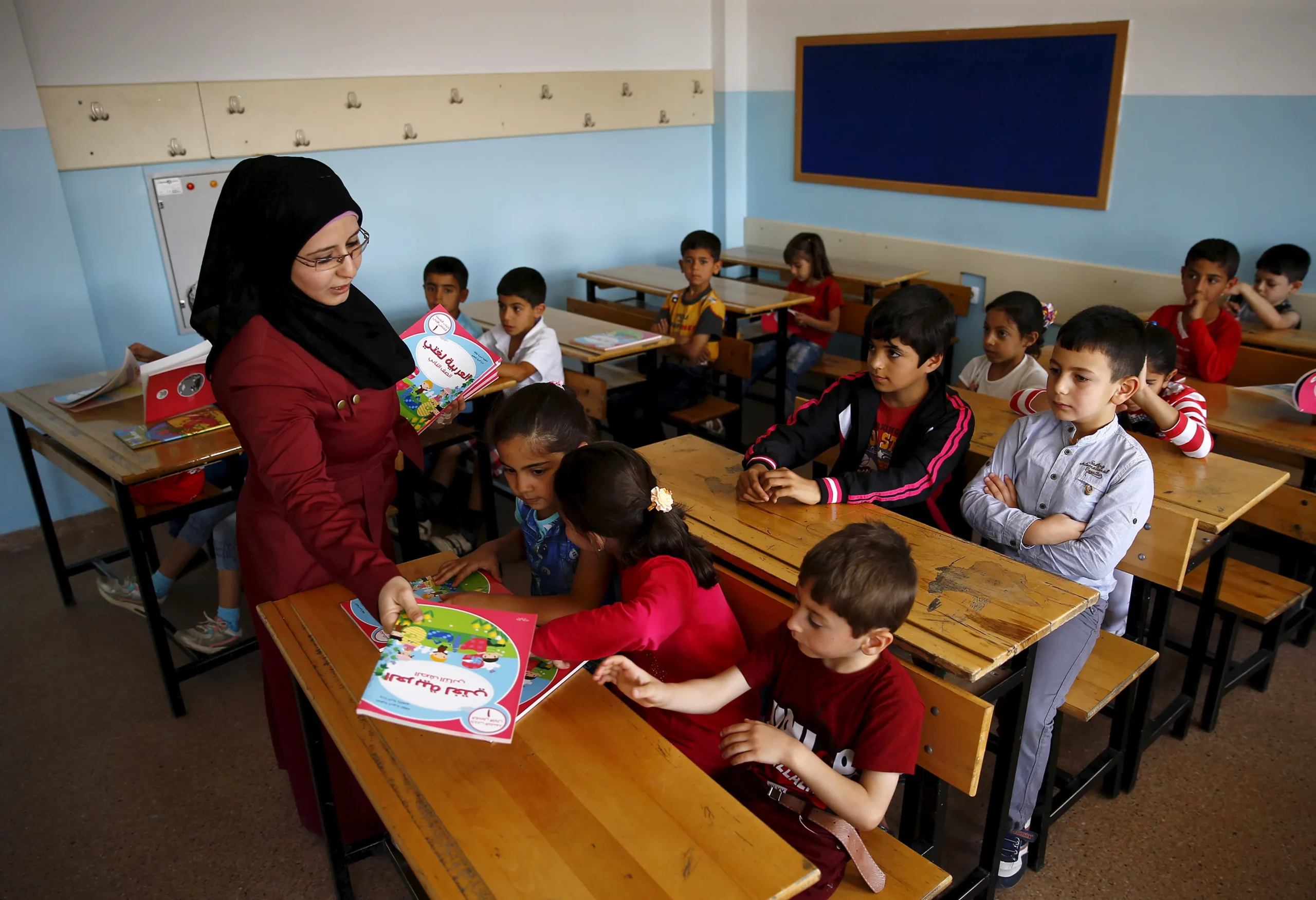On Monday, the municipality of Al-Qaa town in the Baalbek-Hermel Governorate issued a statement calling on public and private schools and associations with educational programs not to enroll any Syrian students without any legal residency and registration documents with the municipality.
The statement called on “the directors of public and private schools, as well as associations registering Syrian students in their educational programs, not to enroll any Syrian student [in the upcoming academic year] before ensuring they possess legitimate residency issued by the General Security and are registered with the municipality.”
Earlier this summer, on June 25, the municipality of Sin El-Fil issued a similar circular calling on private and public schools not to enroll students without legitimate residency from the Lebanese government “in order to safeguard the rights of Lebanese citizens.”
In what is a new episode of Lebanese authorities’ crackdown on Syrians’ access to basic needs and services, children and their futures are the main victims.
In a post on social media, news and media website Akhbar AlSaha expressed that it is “bewildering that municipalities have the authority to decide who should be barred from education within their jurisdictions.”
“This issue sparks not only surprise but also some limited astonishment when placed in context,” the platform added.
“For over a year now, municipalities have been encouraged to tighten restrictions on Syrians, inventing new powers and duties […], all based on an authoritarian decision of inciting against them and holding them responsible for financial and economic collapse.”
The statement added that “both the Free Patriotic Movement and the Lebanese Forces have repeatedly called for the prevention of Syrian refugees, including those registered with the United Nations High Commissioner for Refugees (UNHCR), from enrolling in schools, arguing that [‘refugee cards’] are not legally valid.”
Symbolic, Inhumane and Unsustainable
The municipalities’ decisions and the initiatives of ruling class parties to restrain Syrian children’s access to education can only be viewed as one that is inhumane and unsustainable from a policy perspective.
On one hand, limiting children’s access to education threatens their career and personal growth prospects, all while increasing risks of child labor and other forms of child exploitation and abuse.
On the other, limiting Syrian children’s access to education, amidst absent elaborate plans to address the refugee crisis, is only bound to create a generation of uneducated adults, unable to contribute with skills that can be learned institutionally to the Lebanese economy, not to mention a potential future increase in poverty rates and the accompanying issues that might arise.
Rejecting education for children, regardless of their registration status, is a loss-loss act for both Syrians themselves and Lebanon as a whole, and can only be viewed as a posturing, populist decision, filled with inhumanity and a lack in calculated thinking.


